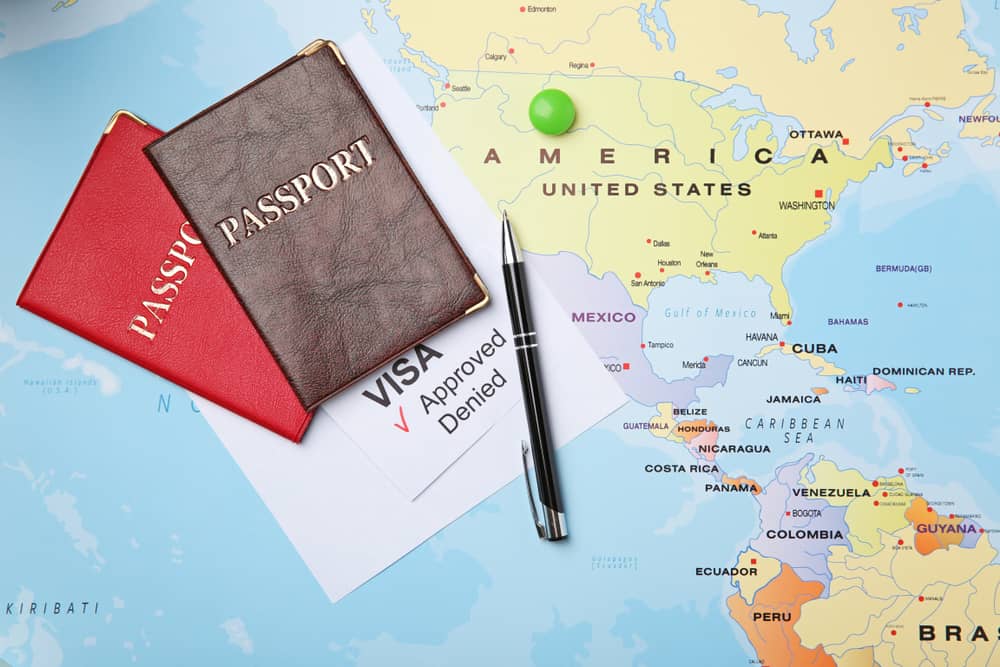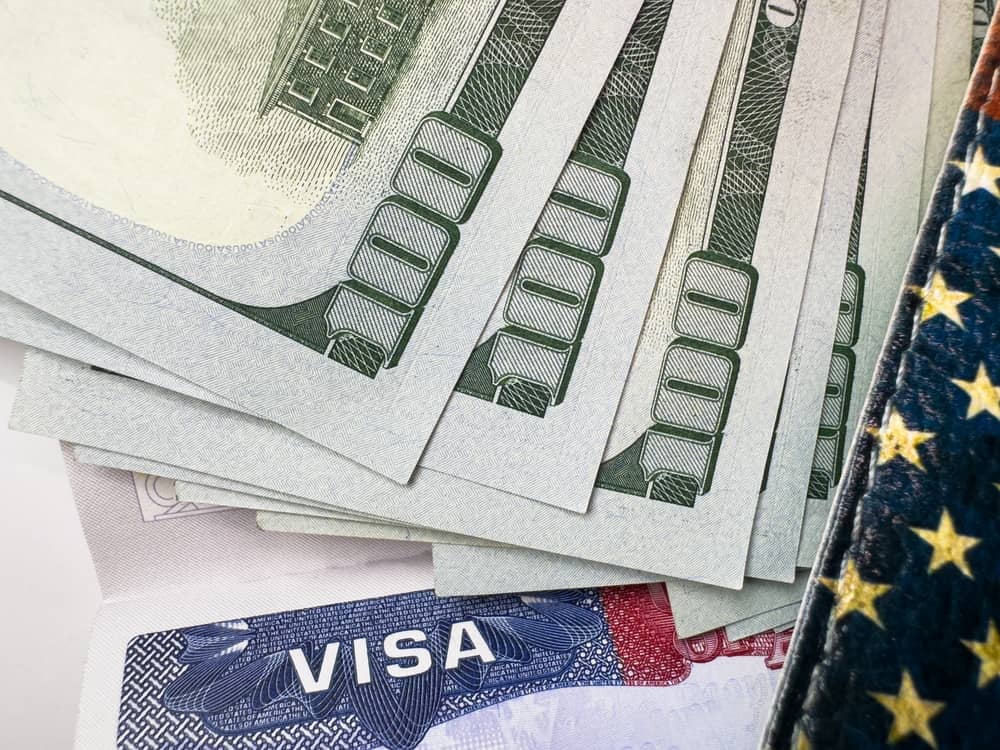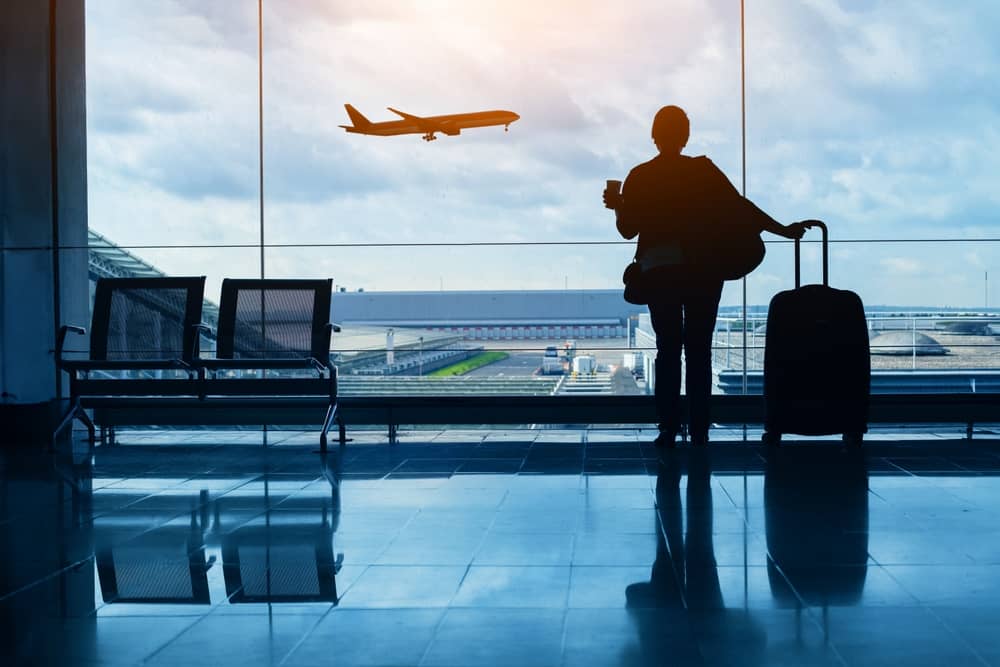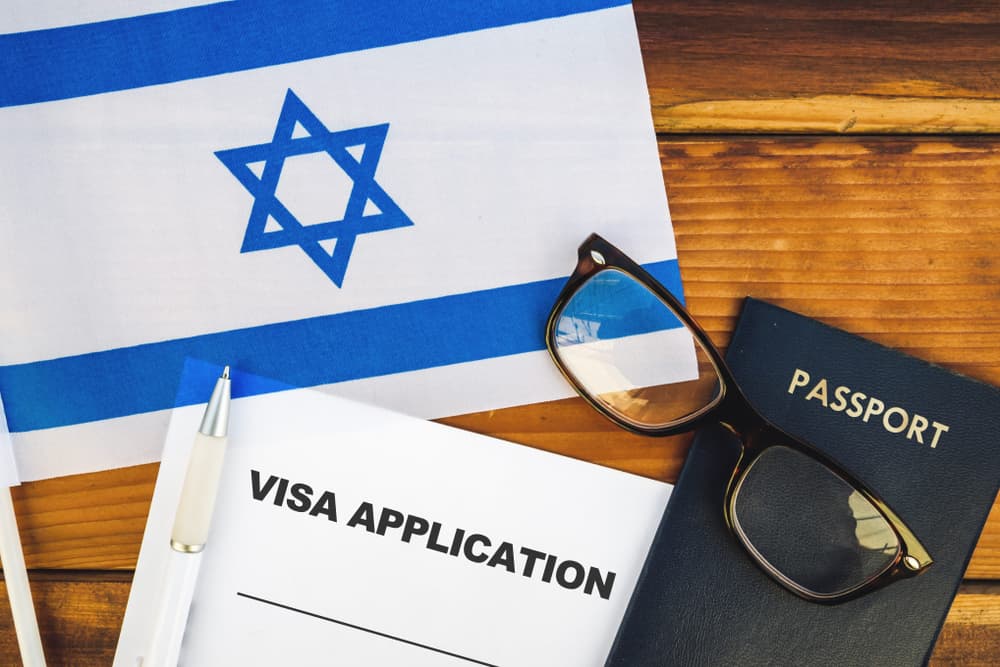
3 minute read | Last update: April 9, 2025
Table of Contents
▼
Table of Contents
▼To visit the United States all foreign travelers need an entry authorization. However, depending on your nationality, you either need the US nonimmigrant visitor visa or the ESTA, an electronic travel authorization.
In this article we explain the US Visa Policy for the United States, the difference between the B1/B2 visa and the ESTA, who can apply, their validity, and more.
US Nonimmigrant Visa: An Overview
The term "nonimmigrant visa" refers to a visa granted to individuals seeking temporary entry into the United States for specific purposes.
Types of Nonimmigrant Visas for Tourism and Business:
-
B1 Visa: Intended for individuals traveling to the US for business-related purposes. This includes activities such as attending conferences, negotiations, or business meetings.
-
B2 Visa: Catered to tourists, this visa is for those intending to visit the US for leisure, medical treatment, or to visit family and friends.
Validity and Duration of Stay of the Tourist and Business Visa
Typically, the B1 and B2 visas are issued with a validity of up to 10 years, depending on reciprocity agreements with the applicant's country.
However, the duration of stay, which is the period the traveler is allowed to remain in the US per visit, is generally up to 6 months.
It's crucial to understand that visa validity and the duration of stay are NOT the same– the former relates to the visa's expiration date, while the latter pertains to the length of time a visa holder can stay during each visit.
The Visa Waiver Program (VWP)
The VWP is a diplomatic concession that allows nationals from specific countries to travel to the US for tourism or business without obtaining a visa.
Instead, those who qualify for the ESTA can complete a short and simple online application. All travelers need is their valid passport and a debit or credit card.
VWP Eligibility and Requirements:
- The traveler must be a national of one of the 39 countries currently participating in the VWP.
- The intended stay in the US must not exceed 90 days.
- Prior to boarding, travelers must have an approved Electronic System for Travel Authorization (ESTA).
Duration and Limitations:
While the VWP offers a streamlined process for eligible travelers, it's essential to note that this is strictly for short stays. Extensions beyond 90 days are not permissible under the VWP, and violations can result in future travel restrictions.
Furthermore, it is not possible to renew an ESTA. But, US tourist and business visas can be renewed. The visa renewal process is quicker.
Electronic System for Travel Authorization (ESTA)
ESTA is an automated system that vets and determines the eligibility of travelers seeking to enter the US under the VWP.
ESTA Application and Validity:
Potential travelers must apply online, and upon approval, the ESTA is valid for 2 years. This allows for multiple entries into the US, but each stay should not surpass the 90-day limit.
What happens if the ESTA is denied?
If one's ESTA application is denied, the individual must then apply for a B1 or B2 visa to travel to the US.
Differences Between ESTA and B1/B2 Visas
ESTA: A pre-clearance mechanism for eligible VWP travelers. It's digital, specific to short stays, and doesn’t require a physical visa stamp.
B1/B2 Visas: Formal visa classifications, applicable to a broader audience, requiring an in-depth application process including an interview at a US embassy or consulate.
Noteworthy Exemptions
Nationals from Canada and Bermuda typically do not need a B1/B2 visa for short-term business or tourist visits.
However, nuances exist based on specific situations, so it's always prudent to consult official guidelines.
Circumstances Requiring VWP Nationals to Seek Formal Visas
Even if a traveler is from a VWP country, there are situations where a B1 or B2 visa becomes necessary:
- Intending to stay in the US for more than 90 days.
- Seeking employment or to engage in academic studies in the US.
- Prior infractions related to US visas or admissions.
- A denied ESTA application.
In conclusion, travelers must prioritize understanding and adhering to visa requirements to ensure they have the right documentation and authorization to enter the United States.
As regulations can evolve, consulting the US Department of State's official website or contacting a US embassy or consulate is always a recommended step in travel preparations.
Share


